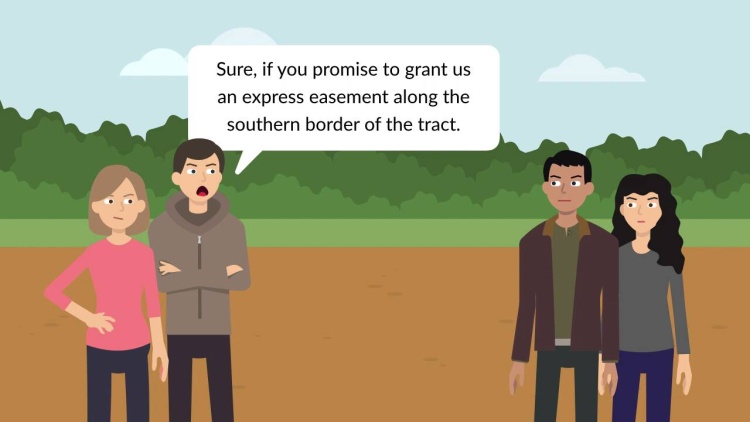Green v. Lupo
Washington Court of Appeals
647 P.2d 51 (1982)

- Written by Sean Carroll, JD
Facts
Don and Florence Green (plaintiffs) owned a parcel of land. They sold a portion of the land to Lupo (defendant). Lupo requested a deed release for a part of the property, and the Greens agreed in exchange for the promise of an easement over part of Lupo’s tract. The terms of the easement were contained in a written agreement that provided, among other things, that the easement was promised to “Don Green and Florence B. Green” and that the easement was “for ingress and egress for road and utilities purpose.” The easement was to allow the Greens to have access to the land retained by the Greens to build and live in a cabin. The Greens used some of their remaining land for mobile homes, and some of the mobile-home residents used the easement as a practice runway for their motorcycles. This caused tension between Lupo and the Greens, and Lupo refused to formally grant the easement. Lupo also blocked the easement to restrict access from the Greens’ property. The Greens brought suit to specifically enforce the easement agreement. The lower court found that the easement was personal to the Greens and could be used only by them for ingress and egress for their own cabin. The court also prohibited the use of motorcycles on the easement. The Greens appealed.
Rule of Law
Issue
Holding and Reasoning (Petrich, C.J.)
What to do next…
Here's why 907,000 law students have relied on our case briefs:
- Written by law professors and practitioners, not other law students. 47,100 briefs, keyed to 996 casebooks. Top-notch customer support.
- The right amount of information, includes the facts, issues, rule of law, holding and reasoning, and any concurrences and dissents.
- Access in your classes, works on your mobile and tablet. Massive library of related video lessons and high quality multiple-choice questions.
- Easy to use, uniform format for every case brief. Written in plain English, not in legalese. Our briefs summarize and simplify; they don’t just repeat the court’s language.





